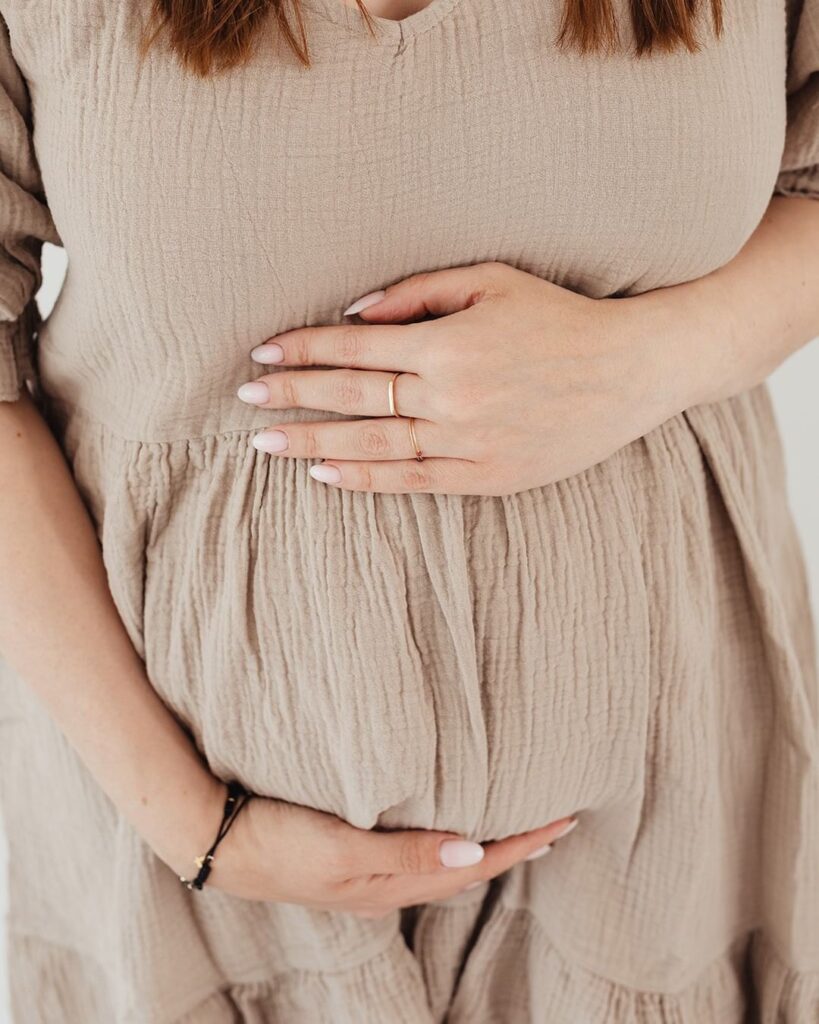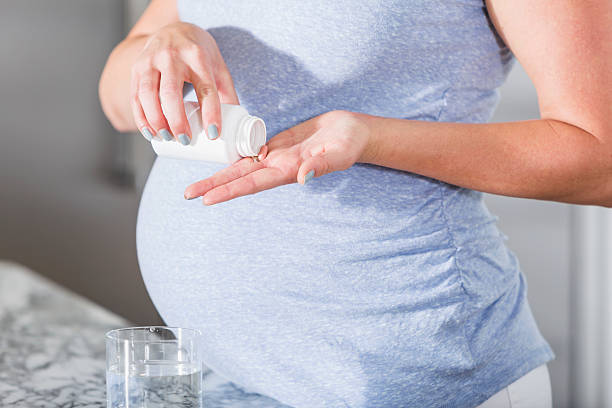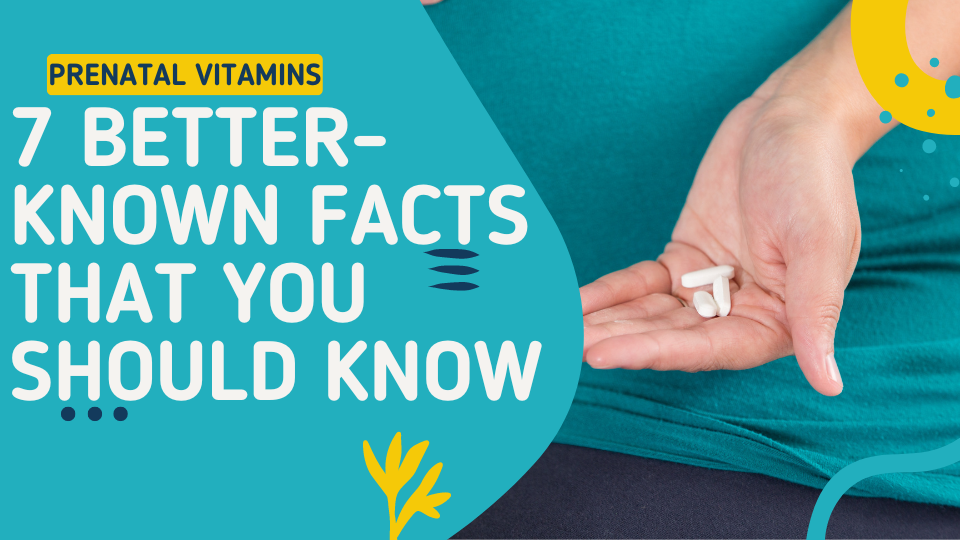Prenatal vitamins are vital to a healthy and healthy pregnancy. They are crucial in assisting your body to create a robust baby while maintaining you as a happy mother. Maintaining your overall health throughout pregnancy is crucial, but taking a prenatal vitamin every day doesn’t have to be complex with all of the alternatives available. In this article, you’re going to learn about prenatal vitamin, including the facts about them.
Table of Contents
What are prenatal vitamins

Pregnant women who intend to conceive often take a special kind of vitamin known as prenatal vitamins to support their health and the health of their unborn child. Because the vitamins provide essential nutrition that is necessary by the body, taking them throughout pregnancy will not only assist in ensuring that you and your baby have a healthy pregnancy but also reduce the risk of developing specific issues associated with pregnancy.
They typically contain folic acid, which helps prevent congenital disabilities in the baby’s brain and spinal cord; iron, which helps produce hemoglobin in red blood cells; calcium, which helps form strong bones and teeth; and vitamin D, which supports bone growth and healthy teeth. Folic acid helps prevent congenital disabilities in the brain and spinal cord of the baby.
It is also essential for women attempting to conceive to take prenatal vitamins. If you are considering getting pregnant, taking a prenatal vitamins can help ensure that you have enough nutrients saved up so that you will have them when your body needs them the most. This will allow you to have a healthy pregnancy and a healthy baby.
When to start taking prenatal vitamins

Taking prenatal vitamins is an intelligent move if you want to be sure you’re receiving enough of the nutrients you need throughout your pregnancy. It is essential to be aware of when you should begin taking them and whether or not you really need to take them.
It is highly suggested that you begin taking prenatal vitamins as soon as possible if you are trying to establish a family and are attempting to conceive. This involves beginning this process a few months before you start attempting to conceive and carrying it for the whole of your pregnancy.
But if you’ve already started trying to become pregnant but haven’t started taking prenatal vitamins yet, there’s no need to panic! It is still highly suggested that you begin taking them as soon as possible to support the fetus’s proper growth throughout the first three months of your pregnancy.
Do prenatal vitamins help you get pregnant?
Some evidence is that taking prenatal vitamins may help with conception and fertility. Folic acid, which is included in prenatal vitamins, can reduce the risk of neural tube birth abnormalities in fetuses. They also include minerals such as iron and calcium, both of which are essential for the growth of a baby as well as the health of the mother throughout pregnancy.
Your diet may be deficient in various essential nutrients, and prenatal vitamins are intended to make up for such deficiencies.
They may be particularly beneficial for women attempting to conceive since they can help ensure that both you and your future child receive all of the vitamins and minerals they need throughout pregnancy. This can be especially helpful for women trying to conceive more than one child. But just as no one diet can ensure weight reduction or muscle growth, no one vitamin can get you pregnant. If you want to become pregnant, don’t believe that all you have to do is take a few tablets since no one vitamin will make you pregnant.
In light of those above, taking prenatal vitamins while pregnant may give you an advantage in terms of your general health and welfare over those critical nine months. Folic acid, which is included in these supplements, effectively reduces the risk of some birth abnormalities in infants, including spina bifida.
Facts about Prenatal Vitamins

- During pregnancy, an essential dietary supplement you can take is one that contains prenatal vitamins.
- You and your baby will benefit from taking prenatal vitamins since they include all the essential elements for a healthy pregnancy. Additionally, they aid in the prevention of issues such as birth abnormalities and low birth weight.
- You must take your prenatal vitamins daily since doing so is not only simple but also risk-free.
- Women who are pregnant or who are actively trying to conceive are strongly encouraged to take prenatal vitamins.
- It is best to take prenatal vitamins once a day, especially in the morning before breakfast. Vitamins should be taken with meals.
- You may take some prenatal vitamins twice or even three times every day.
- Before taking prenatal vitamins, you should see your physician if you are also taking any other drugs throughout your pregnancy.
Best prenatal vitamins for pregnancy

Folic acid intake should be increased to the recommended level while a woman is pregnant. Folic acid is a kind of vitamin B that has been shown to reduce the risk of specific birth abnormalities, including anencephaly, spina bifida, and cleft lip and palate.
If you are not currently pregnant, there is no need for you to take a prenatal vitamin. But if you decide to get pregnant and your doctor thinks it is safe for you to do so, it is a good idea to take a prenatal vitamin before you conceive. This will help ensure that you have a healthy pregnancy and baby. Your body will have time to adjust to these changes before the baby’s arrival if you do it this way.
Folic acid, which is included in the finest prenatal vitamin, has been shown to reduce the risk of specific birth abnormalities, including cleft lip and palate, anencephaly, and spina bifida. They should also include iron, calcium, and other minerals essential for maintaining good health throughout pregnancy. They must include these nutrients. Still, it is also necessary to consider how much they contain to ensure that they do not create any adverse effects when consumed consistently for several weeks or months while pregnant!
Prenatal vitamins with iron
Taking prenatal vitamin that includes iron is an excellent approach to ensure that both you and your baby will have healthy and robust growth.
Iron is a vital mineral required to produce red blood cells, which are responsible for transporting oxygen throughout the body. Because you are now responsible for producing another human being inside of you, your requirement for iron will rise while you are pregnant. Anemia, which may be caused by a lack of iron and lead to exhaustion, might make it difficult for you to use the second trimester of your pregnancy fully.
You may be curious about the rationale for the availability of more than one kind of prenatal vitamin containing iron on the market nowadays. The heme and non-heme forms of iron found in food are where the solution may be found. Heme iron is found in animal products such as meat and fish, whereas non-heme iron is found in plant-based foods such as spinach and beans. The body absorbs both heme and non-heme iron at significantly different rates: heme iron is absorbed at around 15%, whereas non-heme iron is absorbed at a rate of 5% or less.
If you’ve been having trouble staying awake or feeling weak recently, talk to your doctor about the possibility of taking a prenatal vitamin that contains iron.
Vegan prenatal vitamins
A vegan prenatal vitamin is the same as any other prenatal vitamin; it includes folic acid, calcium, iron, and other essential elements that assist in promoting the growth of your baby that are included in all prenatal vitamin. However, it does not include any animal products, byproducts, or derivatives of animal products in any way. That implies that these dietary supplements are appropriate for vegan people and anybody else who, for personal reasons, prefers not to eat goods derived from animals.
FAQs
Is it OK to take prenatal vitamins if not pregnant?
Yes, it is OK to use prenatal vitamins if you are not pregnant.
Prenatal vitamins often include folic acid, calcium, iron, and other vitamins and minerals that are vital for women who are pregnant or expecting to get pregnant. In addition to menopausal women and those attempting to conceive, anybody in need of a nutritional boost may utilize them.
Taking prenatal vitamins while not pregnant is healthy and safe. You may want to consider taking these even if you don’t have a special need for them; they’re that effective!
When should you start taking prenatal vitamins?
The first day of your most recent period is the earliest that you may start taking prenatal vitamins. This implies that you should start taking them around 4 weeks before you want to try to become pregnant in order to maximize your chances of success. After a few months of taking prenatal vitamins, you should take a pregnancy test to confirm that you are pregnant if you are making an effort to get pregnant while you are taking prenatal vitamins.
What prenatal vitamin is best?
The most effective prenatal vitamin for you is one that includes just the vital nutrients. These vitamins should be devoid of toxins and heavy metals that might harm your child. Additionally, it is essential to pick a prenatal vitamin made for pregnant women, as opposed to one designed for everyone. Pregnant women need more calcium and folate than non-pregnant women.
Conclusion
To summarize everything, you should look for a prenatal vitamin high in folic acid since this is the one component your body cannot produce on its own. Because folate plays a vital role in the development of the fetus’s brain, it is essential to ensure that you consume a diet rich in folate and take a folic acid supplement.
When you find out you are pregnant, beginning to take prenatal vitamins as soon as possible in the early stages of your pregnancy is a very crucial step to take. This is because your body needs certain essential nutrients to assist in the formation of the cells and bones of the baby.
Some women do not understand the significance of taking prenatal vitamins until it is too late and have already experienced the adverse effects of a deficiency in one or more minerals. Because various brands include varying quantities and kinds of nutrients, it may be challenging to determine which brands provide the greatest products.

